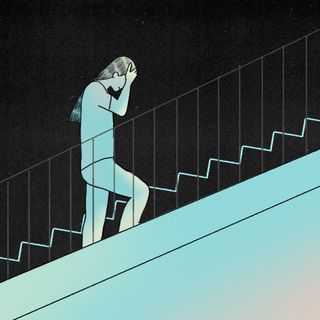Have you ever been told you sleep with your eyes open? Do you mostly wake up with your eyes feeling particularly dry, itchy — or simply, just tired? If you answered these in the affirmative, you may have a condition medically known as ‘nocturnal lagophthalmos.’
Roughly, almost one in five people, or 20% of the global population, experiences nocturnal lagophthalmos. While the phenomenon doesn’t prevent people from falling asleep, it prevents them from being able to close their eyes completely while they are asleep.
Sometimes, people are born with abnormalities that prevent their eyelids from shutting completely. The condition can also develop over time if someone’s facial nerves get paralyzed due to severe injuries, such as strokes, tumors, or nervous system disorders — anything that prevents the muscle that closes the eyelids from functioning properly. It can also result from Graves’ disease, an immune systemdisorder that can cause one’s eyes to bulge.
Related on The Swaddle:
Why Do We Get Those Mild, Pesky Eye Twitches?
While the condition doesn’t impact one’s ability to fall asleep, it can lead to poor or disrupted sleeping patterns since open eyes can’t block out light. Moreover, it can also cause dryness or redness in the eyes, making them more prone to blurred vision and even light sensitivity; this happens because consistently open eyelids prevent eyes from getting adequate lubrication. When one’s eyes are closed, the eyelid acts as a barrier against moisture getting evaporated — effectively locking the droplets inside which in turn lubricates the eyes. This moisture also contains natural antibiotics that protect the eyes against infections.
If left untreated, nocturnal lagophthalmos over time can cause inflammation in one’s eyes, or even lead to scarring due to constant itching that could hamper vision. Treatment options for the condition vary: comprising from simple eye-masks and eye-drops to even surgery and implants — depending on what medical practitioners deem fit for specific cases.




